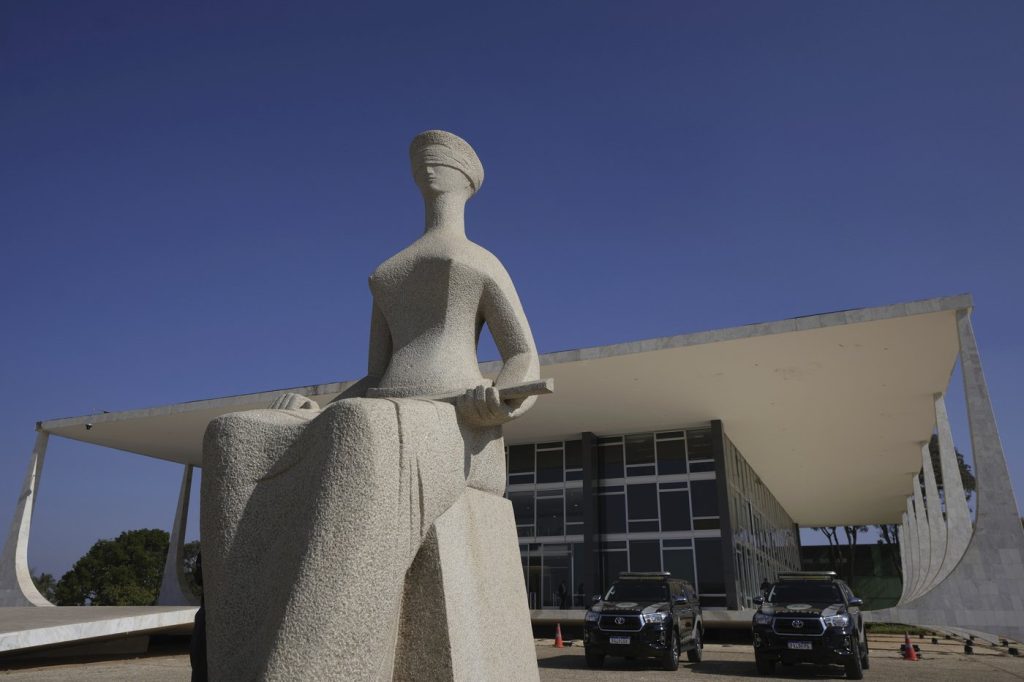On Tuesday, Lieutenant Colonel Mauro Cid appeared at Brazil's Supreme Court to testify against his former ally, General Walter Braga Netto, a significant moment that highlights the divide and scandal within Brazil's military. This meeting of military figures in a civilian court represents a historical shift for Brazil, where senior military officers have historically avoided accountability, especially since the country experienced two decades of military rule.
Analysts have pointed out that the confrontation between a colonel and a general breaks the long-established notion of impunity within the military hierarchy. Lucas Figueiredo, an author on Brazil's dictatorship, remarked, "Putting a colonel up against a general levels the playing field and signals that for the justice system, all defendants are equal." This development signifies a potential turning point for justice in Brazil as the investigations surrounding former President Jair Bolsonaro, who is accused of attempting to orchestrate a coup following his electoral defeat, unfold.
In November 2022, Cid, a former aide to Bolsonaro, alleged that Braga Netto was involved in discussions aimed at thwarting the inauguration of President Luiz Inácio Lula da Silva. Braga Netto previously served as Bolsonaro’s chief-of-staff and was his running mate in the 2022 election. Both men are currently facing serious charges, including conspiracy to stage a coup and involvement in an armed criminal organization, with a verdict expected by the end of 2025.
Cid also claimed that after Bolsonaro's defeat, he received a bag of cash from Braga Netto intended for distribution among Bolsonaro supporters gathered outside military headquarters. Braga Netto has refuted these claims and characterized Cid as a traitor. The Supreme Court is investigating these allegations, further complicating the already tense political situation in Brazil.
The confrontation on Tuesday took place behind closed doors, ordered by Supreme Court Justice Alexandre de Moraes, who chairs the coup probe. This decision came amid concerns about national security and personal matters. Both Braga Netto and Cid reportedly adhered to their conflicting accounts of the events and avoided direct interaction during the testimony.
Braga Netto, who traveled to the court from a jail cell in Rio de Janeiro, where he has been held since December for obstructing investigations, has been vocal about his disdain for Cid's allegations. Tensions were palpable during the interrogation, described as heated, with Braga Netto's lawyer alleging that Cid is a "liar."
The appearance of both men in a civilian court marks a radical departure from Brazil's history, where military personnel have typically been shielded from legal repercussions. Unlike other countries in the region, such as Argentina and Chile, no members of Brazil’s military have faced imprisonment for actions committed during the military dictatorship from 1964 to 1985. Bolsonaro, despite being embroiled in numerous legal troubles, continues to exert influence as the figurehead of opposition against President Lula.
The last Brazilian general imprisoned for political reasons was Argemiro de Assis Brasil, who was arrested in 1964 for opposing the military coup. Generals today have expressed concerns over the Supreme Court's actions, which they believe discredit the armed forces. General Roberto Peternelli indicated that such investigations do not serve the interests of the military or the nation.
The accused had sought to have their cases tried at the Superior Military Tribunal, where legal experts speculate they might receive more sympathetic judgments. However, the military court declined jurisdiction, recognizing that the charges, while involving military personnel, do not constitute military crimes.
With millions of Brazilians following the developments through extensive media coverage over the past two years, there are lingering doubts about whether Cid and Braga Netto would face substantial prison sentences, even if found guilty. Fabio Victor, a scholar of military history in Brazil, pointed out the historical tendency to pardon those implicated in coup-related actions. Nonetheless, the fact that senior military officials are facing trial for coup conspiracy reflects a growth in the accountability of Brazil’s justice system.











